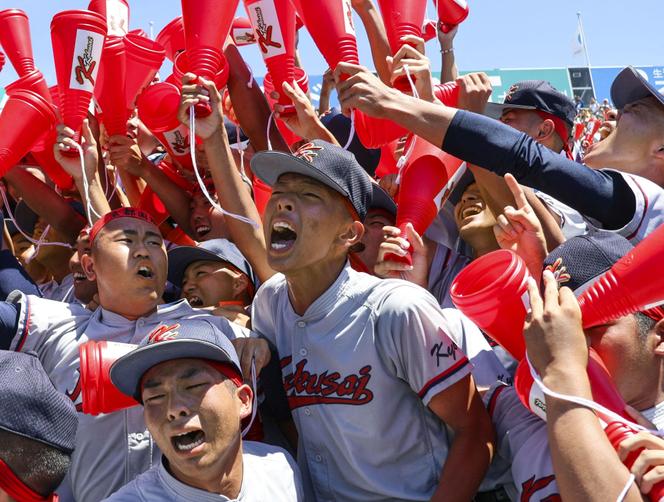

LETTER FROM TOKYO

In the Land of the Rising Sun, every school has its own coat of arms, flag and anthem, often extolling the beauty of the seasons or educational values. Sometimes, these texts provoke unfavorable reactions. Such is the case at Kyoto International High School, 450 kilometers from Tokyo. For the local nationalist fringe, the problem lies in the fact that the anthem's lyrics are in Korean and refer to the "East Sea," the stretch of water separating the Korean peninsula from the Japanese archipelago. The Japanese insist on using the term "Sea of Japan."
The controversy erupted after the school's victory in the final of the high school baseball tournament, known as the Koshien, against Tokyo's Kanto Daiichi High School on August 23, in a thrilling game that ended 2-1. The result triggered a wave of attacks on social media, with calls for "the expulsion of Kyoto International High School from the High School Baseball Federation" and accusations of "disgrace for Kyoto."
Kyoto International High School is the successor to Kyoto Chosen, founded in 1947 to educate the children of Korean expatriates. "Chosen" is the old name for Korea. In the 1990s, faced with financial difficulties and declining student numbers, the school decided to integrate into the Japanese education system. Supported by the South Korean Ministry of Foreign Affairs and the Korean Residents Union in Japan (Mindan), the school obtained accreditation from the Japanese Ministry of Education in 2003 and changed its name to Kyoto International High School. Today, 70% of its 159 students are Japanese.
However, in Japan, the 600,000 or so Koreans, many of whom are descendants of migrants who fled poverty or were persecuted by the Japanese militarist regime during colonization (1910-1945), and anything related to the Korean peninsula remain the target of persistent racism.
The Zaitokukai, an association founded in 2006 by nationalist Makoto Sakurai, which campaigns against the special privileges of Koreans in Japan, made news in the 2010s by organizing rallies at the entrance to Shin-Okubo, a Tokyo district known for its large Korean population. Slogans such as "Kill the Koreans!" and "Koreans, hang yourself! Drink poison! Die!" were heard at the rallies.
Tokyo Governor Yuriko Koike, who is close to the Liberal Democratic Party and was re-elected in July for a third term, as she has every year since taking office in 2016, refused on September 1 to honor the Koreans – between 2,900 and 6,600, according to estimates – who were massacred in the days following the earthquake of September 1, 1923. The day after this tragedy, which left 105,000 people dead in Tokyo and the surrounding area, rumors spread that Korean migrants had poisoned wells, started fires and sparked riots.
You have 47.34% of this article left to read. The rest is for subscribers only.
